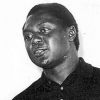10 Tribal History Books That Reshape Understanding of Indigenous Worlds
Discover Tribal History Books recommended by Sam Altman, Paul Graham, and Hampton Sides illuminating complex indigenous narratives






What if much of what you thought you knew about indigenous histories overlooked crucial stories of survival, conflict, and identity? Tribal history is far richer and more complex than popular narratives suggest, revealing struggles that span continents and centuries. Right now, this field is gaining fresh attention as experts and readers alike seek to understand the nuanced realities behind tribal experiences.
Consider Hampton Sides, a bestselling author who praises "The Other Slavery" for challenging long-held assumptions about Native American history. Meanwhile, Sam Altman, CEO of OpenAI, and Paul Graham, co-founder of Y Combinator, highlight "The Old Way" for its compelling link between ancient hunter-gatherer lifeways and modern human origins. Their endorsements reflect a growing appreciation for books that deepen our grasp of tribal histories across diverse regions.
While these expert-curated titles provide proven perspectives and narratives, you might want insights tailored specifically to your interests, background, or goals. For that, consider creating a personalized Tribal History book that builds on these insights and fits your unique learning journey.
by Andrés Reséndez··You?
by Andrés Reséndez··You?
Unlike most tribal history books that focus primarily on broad cultural narratives, Andrés Reséndez zeroes in on the harrowing and often overlooked history of Indian enslavement in America. Drawing from extensive archival research and testimonies, he reveals how forced labor, more than disease, devastated indigenous populations from the conquistadors' arrival through the early 20th century. You’ll gain insight into complex systems of indigenous and colonial slavery, and the lasting impact on Native communities, especially through chapters detailing silver mine labor and intertribal slave trade. This book suits anyone interested in a deeper, more nuanced understanding of American history beyond familiar narratives.
Recommended by The Washington Times
“In a mix of narrative, interviews, analysis, and tribal lore, Mr. Vennum has crafted a complex and entertaining book . . . American Indian Lacrosse offers a sweeping new perspective on a game that has functioned, at various times, as symbolic combat ritual, healing ceremony, gambling spectacle, war ruse, and intercollegiate sport.”
by Thomas Vennum Jr.··You?
by Thomas Vennum Jr.··You?
When Thomas Vennum Jr. first discovered the deep spiritual and cultural significance of lacrosse among Native American tribes, he set out to explore beyond the usual sports narrative. This book uncovers lacrosse not merely as a game but as a "little brother" of war, a healing ritual, and a living tradition woven into tribal life, especially among the Northeast, Southeast, and Great Lakes peoples. You'll learn about the game's rules, equipment, and regional variations, along with rich legends and the craftsmanship behind Indian stick making. If you want to understand lacrosse's role as a cultural expression and historical practice, this book offers detailed insights that go far beyond typical sports history.
by TailoredRead AI·
This personalized book provides a comprehensive framework exploring ancient hunter-gatherer lifestyles through the lens of tribal history and cultural evolution. It examines adaptive strategies, social structures, and survival mechanisms of early human societies, with tailored insights fitting your particular interests and background. By filtering out unrelated content, it focuses on key methodologies for understanding how these tribal groups shaped human development, emphasizing evolutionary anthropology and archaeological evidence. The tailored approach ensures that readers engage with material most relevant to their goals, whether academic, professional, or personal, offering a nuanced perspective on the origins and transformations within hunter-gatherer cultures.
Recommended by Sam Altman
CEO of OpenAI, Former Y Combinator CEO
by Elizabeth Marshall Thomas··You?
by Elizabeth Marshall Thomas··You?
When Elizabeth Marshall Thomas first lived among the Kalahari San in 1950, she witnessed a lifestyle that had persisted for 15,000 centuries, embodying the essence of human origins. Drawing from her extensive anthropological background and firsthand experiences, she unpacks how hunter-gatherer skills and customs mirror survival tactics of our animal ancestors, revealing deep connections to our evolutionary past. The book offers detailed observations on the social dynamics, survival strategies, and cultural knowledge of these last hunter-gatherers, challenging modern assumptions about civilization and progress. It’s particularly insightful if you’re interested in human evolution, anthropology, or the enduring impact of ancient lifestyles on contemporary society.
Recommended by Margari Aziza
Co-founder and Executive Director of MuslimARC
“Great book!!” (from X)
by Roxanne Dunbar-Ortiz··You?
by Roxanne Dunbar-Ortiz··You?
Roxanne Dunbar-Ortiz, with over forty years of activism in Indigenous and social justice movements, brings a deeply informed perspective to American history. Her book challenges the traditional narrative by centering Indigenous experiences and exposing settler-colonial violence often omitted from mainstream accounts. You’ll gain insights into the systematic policies aimed at erasing Native peoples, supported by detailed historical events ranging from early colonization to contemporary movements. This book suits anyone seeking to understand America’s past through the lens of those who have been marginalized and silenced, especially students and activists interested in decolonizing history.
Recommended by Madawi Alrasheed
Fellow of the British Academy
“Re-read an interesting sentence in Samin's Book Of Sand and Soil : when you are tribes and clans, you tend not to be revolutionary republicans. For KSA, kinship nationalism keeps the cauldron of tribe boiling, without bubbling over into mass insurrection” (from X)
When Nadav Samin first explored the role of genealogy in Saudi Arabia, he uncovered a complex interplay between tribal identity and modern state politics that few had examined so thoroughly. Drawing from his background as an anthropologist and extensive fieldwork, Samin reveals how tribal genealogies shape social status and political power, especially through the work of 20th-century scholar Ḥamad al-Jāsir. You learn how tribal belonging is both a personal quest and a state-endorsed ideology influencing citizens' lives, with detailed cases of nontribal Saudis seeking validation. This book suits anyone interested in Middle Eastern history, anthropology, or the subtle ways kinship informs national identity.
by TailoredRead AI·
This personalized book explores the intricate role of genealogy in shaping tribal kinship and political power within Middle Eastern contexts, focusing specifically on Saudi Arabia's historical landscape. It provides a tailored framework analyzing how lineage and tribal affiliations influence social hierarchy, governance, and intertribal alliances. The book addresses methodologies for understanding tribal belonging through genealogical narratives, emphasizing political anthropology and identity formation. By cutting through broad generalizations, it fits the reader’s specific interests in tribal history and Middle Eastern politics, delivering insights that resonate with their particular goals and background. This tailored approach offers a nuanced perspective on tribal power dynamics seldom captured in standard historical accounts.
by Josephine Flood··You?
by Josephine Flood··You?
When Josephine Flood first realized the deep resilience embedded in Aboriginal history, she crafted a narrative that reaches beyond mere dates and events to explore the lived experiences of Australia's indigenous peoples. Drawing from her extensive archaeological background and leadership at the Aboriginal Heritage Section, she guides you through Dreamtime stories, traditional roles, and the harsh realities faced during European colonization. The book tackles complex questions such as the absence of treaties and ongoing community challenges, making it a thoughtful resource for anyone seeking to understand this ancient culture from multiple perspectives. If you're looking to grasp the full scope of Aboriginal history with both empathy and detail, this is a well-informed choice.
Recommended by Raymond Porter
Advocate for equality and kindness
“@Native_Today I read this book at 16 and I read it over and over and I learned the truth about America. I fell in love with the spirit of true Americans so much so that I feel more in common with your people than I of my own. My dream would be to become an adopted true American.” (from X)
by Dee Brown, Hampton Sides··You?
by Dee Brown, Hampton Sides··You?
When Dee Brown first realized the extent of the systematic destruction faced by American Indian tribes in the 19th century, he crafted a narrative that dives deep into this overlooked chapter of history. Drawing from council records, autobiographies, and firsthand accounts, the book details the tragic battles, broken treaties, and cultural losses experienced by tribes like the Dakota, Sioux, and Cheyenne. You'll gain insight into specific events such as the Wounded Knee Massacre and meet influential leaders through vivid storytelling. This book suits anyone eager to understand the American West beyond popular myths, especially those interested in historical injustices and indigenous perspectives.
by Bill O'Reilly, Martin Dugard··You?
by Bill O'Reilly, Martin Dugard··You?
Unlike most tribal history books that often focus narrowly on individual battles or cultural aspects, this one broadens the scope to chart the brutal and complex conflicts between Native American tribes and the expanding United States from 1811 onward. Bill O'Reilly and Martin Dugard, both bestselling authors with deep experience in historical nonfiction, guide you through the fierce clashes from Tecumseh's alliance and the Battle of Tippecanoe to the tragic Trail of Tears, revealing lesser-known moments that shaped America’s frontier. You'll gain insights into the political and military strategies of key figures like Andrew Jackson and James Monroe, understanding the human cost behind policies and battles. This book suits anyone interested in the tangled origins of American expansionism and its impact on indigenous peoples, though those seeking detailed tribal cultural studies might find it more focused on military and political history.
by Dante Fortson··You?
by Dante Fortson··You?
When Dante Fortson first realized the extent to which historical narratives about the tribes of Israel have been obscured, he set out to untangle a complex web of biblical prophecy, historical records, and cultural memory. This book challenges you to reconsider accepted history by examining evidence like 1747 English maps placing the tribe of Judah on Africa's slave coast and slave ledgers listing Hebrew names. You’ll explore connections between biblical prophecies and the transatlantic slave trade, gaining insights into identity, survival, and spiritual endurance. If you're curious about biblical history's intersections with American and African heritage, this concise volume offers provocative perspectives that invite honest reflection about the legacy of the Lost Tribes.
by Deborah Miranda··You?
by Deborah Miranda··You?
Drawing from her profound knowledge as a Native American scholar, Deborah Miranda explores the layered history and memory of California Indians in this memoir. You gain insight into the intersection of personal ancestry and broader tribal histories through a mix of oral tales, archival materials, and poetry, which together offer a nuanced perspective on cultural survival and identity. Chapters delve into themes like survivance and cultural memory, making it clear that this is not just history but a living narrative. This book suits anyone interested in indigenous voices, cultural resilience, and reexamining American history through a more inclusive lens.
Get Your Personal Tribal History Guide in 10 Mins ✨
Stop following generic advice. Receive targeted Tribal History insights that fit your interests and goals.
Join 15,000+ Tribal History enthusiasts who've personalized their approach
Conclusion
These 10 books reveal tribal history's multifaceted layers: from the overlooked horrors of indigenous enslavement in "The Other Slavery" to the cultural reverberations of lacrosse as detailed in "American Indian Lacrosse." Themes of resilience, identity, and conflict emerge repeatedly, offering a textured understanding of indigenous experiences worldwide.
If you’re grappling with understanding colonial impacts, start with Roxanne Dunbar-Ortiz’s "An Indigenous Peoples' History of the United States" alongside "Bury My Heart at Wounded Knee." For rapid immersion into tribal cultural practices, pair "The Old Way" with "The Original Australians." This curated approach helps you build both historical context and cultural empathy.
Once you’ve absorbed these expert insights, create a personalized Tribal History book to bridge the gap between general principles and your specific interests, whether that’s North American indigenous struggles, Middle Eastern tribal dynamics, or biblical tribal identities. Your exploration of tribal history deserves this tailored depth.
Frequently Asked Questions
I'm overwhelmed by choice – which book should I start with?
Start with "The Other Slavery" for a profound understanding of Native American history beyond common narratives. It’s widely recommended and offers a foundational perspective on indigenous experiences.
Are these books too advanced for someone new to Tribal History?
Not at all. Many titles, like "The Old Way" and "Bad Indians," are accessible and engaging for newcomers while still offering depth appreciated by experts.
What's the best order to read these books?
Begin with broad historical overviews such as "An Indigenous Peoples' History of the United States," then explore specific themes like cultural practices in "American Indian Lacrosse" or tribal identity in "Of Sand or Soil.".
Should I start with the newest book or a classic?
Both approaches work. Classics like "Bury My Heart at Wounded Knee" provide essential context, while newer works like "An Indigenous Peoples' History of the United States" offer updated perspectives.
Do I really need to read all of these, or can I just pick one?
You can pick based on your interests, but reading multiple offers a richer, more nuanced understanding of tribal history's many dimensions.
How can a personalized Tribal History book complement these expert recommendations?
Personalized books tailor insights from expert works like "The Other Slavery" to your unique background and goals, making complex histories more relevant and actionable. Learn more here.
📚 Love this book list?
Help fellow book lovers discover great books, share this curated list with others!
Related Articles You May Like
Explore more curated book recommendations









